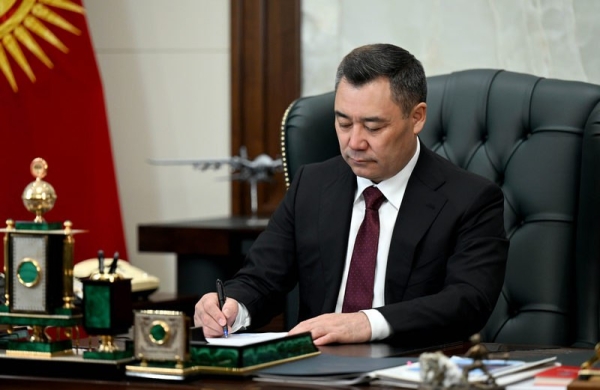Kyrgyzstan has suspended the registration of new airlines, with President Sadyr Japarov issuing a decree that halts the issuance of air operator certificates (AOCs) to fresh applicants. The move aims to tighten control over the country’s civil aviation sector, bolstering its safety standards and international reputation.

Under the decree, Japarov also tasked the State Civil Aviation Agency (SCAA) with conducting comprehensive inspections of Kyrgyz airlines operating abroad and owning aircraft absent from Kyrgyzstan for more than a month. Non-compliant carriers risk losing their operating licenses.
“Our main task is to establish strict control over airlines operating abroad and ensure that each of their flights fully complies with state and international community requirements,” President Japarov emphasized.
This action is part of broader efforts to elevate Kyrgyzstan’s aviation standards as authorities work to lift the country from the European Union’s aviation “blacklist.” These restrictions have impacted Kyrgyz carriers’ ability to operate within EU airspace, a longstanding challenge for the nation’s aviation sector.
The decree follows a high-profile incident involving a former Kyrgyz-registered Il-76TD aircraft that was downed over Sudan on October 21. Debris from the wreckage included documents from “Manas International Airport,” which operates Kyrgyzstan’s airports. Aviation officials clarified that the Il-76, previously registered with the Kyrgyz tail number EX-76011, was removed from the country’s civil registry on January 12, 2024, and re-registered in Sudan.
Currently, Kyrgyzstan’s aviation registry includes five passenger airlines and twelve cargo carriers—the highest number in Central Asia. Recently, the SCAA had been preparing to certify Blue Jet Airways KG, a new airline developed with support from Turkey’s 3C International. The carrier planned to initiate cargo operations with a locally registered Boeing 727 under tail number EX-27015.
With this latest directive, Kyrgyzstan aims to enhance oversight in a sector that plays a significant role in the country’s connectivity and trade, while reinforcing safety and regulatory compliance standards to align with international norms.




